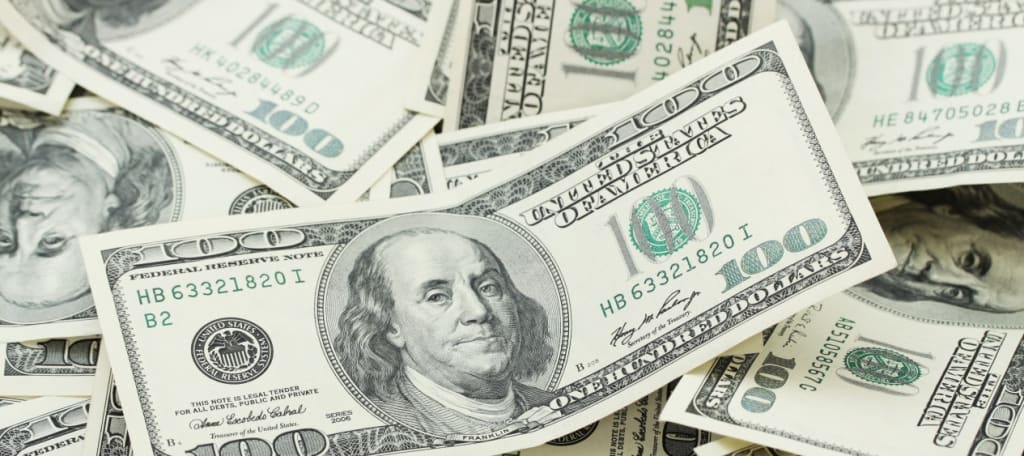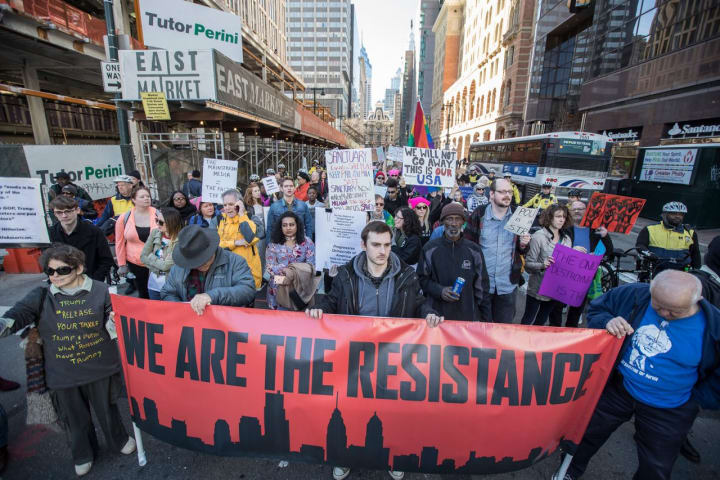Conditioned to Cocoon
Examining the citizen's role as individuals in today’s America.

When I was six, I told my sister I wanted to buy a castle in Europe and have a summer home on the beach. She told me that I needed to get a high paying job. “I’ll just become a singer, an actor, and a model!” She told me that should cover it. That was in the late 1990s, a time when people didn’t carry an unlimited supply of media in their pocket.
In fact, most of my earliest memories involve media. Cartoons, hilarious commercials, Hollywood blockbusters, store catalogs. I developed preferences and connections to advertisements, television programs, celebrities, fashion, films, and most recently the rise of social media. These days there is no escape from media and its images of glamour, luxury, and fame. Whether I care to admit it or not, media has secured its grip on Americans, myself included.
Growing up, I remember seeing television programs of wealthy families in giant homes and imprinted this into my brain that this was the life I wanted. I wanted to live carefree where I had the means to buy and do whatever I wanted, whenever I wanted to do so. This idea, to have such a privileged life, contrasted my own experience growing up crammed in the same bedroom with my four siblings. It was a small three bedroom house my family shared with my uncle and his family. I always found it ironic how much space the characters in Full House had.
It wasn’t uncommon to interact with other kids my age who dreamed of one day becoming performers, actors, professional athletes, all vying for the limelight. We were taught from a young age when you wish upon a star that all of our dreams would come true. We believed the proverb of an animated insect.
In the short time I’ve lived, I’ve realized this idea of wealth and luxury was the epitome of success presented to the masses by our pop culture. It presents itself innocent and easy, like the spotlight is waiting for me to show my talent, with its catchy beats telling me that the person with the most money wins. Buy, buy, buy. Me, me, me. Get money and horde it for yourself to make your life easier and more pleasurable.
I’ve been conditioned to cocoon within my personal soundproof bubble, a space where I am unconcerned about anything that doesn’t interest or benefit me. As I grew older, my childhood dreams of becoming a triple threat subsided, and I searched for my place in the world.
Unexpectedly, the paradigm shifted when I took a human diversity class at university, learning about people’s experiences from many different walks of life, and the value of those experiences. It was the first time I confronted the barbaric history of the United States and the injustices that continue to happen today in regards to race, class, gender, and sexual orientation. During this time, social media’s influence was on the rise in our culture, its influence exponentially growing to what it has become today, a multifaceted role with pros and cons in its shaping of society.
I became a journalism major at university, initially going into the program with the intention of becoming a film reporter. I was challenged by the curriculum of a passionate professor who believed in journalism’s role in society the way some dedicate themselves to religion. She inspired me to peek my head outside of pop culture, to look at the actual images of the world void of Photoshop and vibrant colored video sets. My media consumption habits began to change after graduating. This change did not happen overnight, rather it was in the same way that tea leaves steep in hot water, dissipating their flavor slowly.
I remember the first time I saw the body of a dead child on social media. I was sitting on the couch curled up in a blanket with my dog and my then-boyfriend at the time, scrolling through various posts on my Twitter feed.
I clicked on Al Jazeera’s profile and then I saw him. A young boy, no older than fourteen, holding the body of his dead infant brother. He was wailing in a way I had never heard before, crying out to Allah for justice, sobbing and screaming. I didn’t need the Arabic translations to see the depth of pain this young boy was experiencing, already having lost his parents and now his last relative also taken from him.
My heart felt like it was vacuumed into a void. I had no way of understanding his loss, but from across the world, I wept with him. I wished I could hold him and give him the justice he deserved. I wanted to look away, but I couldn’t, and I knew there would be no forgetting this scene. There were stories like this by the hundreds and thousands.
In the weeks that followed, I began researching the conflict in Syria, a civil war I regrettably had no idea had been going on since 2011, the same year I graduated from high school. Syria and the Middle East is one of many global humanitarian crises that is taking place right before our eyes in an age where everything is easily connected. I began sharing posts from journalists who were covering the atrocities, in addition to the refugee crisis that displaced thousands of families.
People, whom I consider my friends, didn’t seem to care or respond. They reserved their likes and retweets for posts of new puppies, weddings, Friday night “shenanigans,” and memes. I began growing impatient with conversation topics with those around me, no mention of the terror taking place at the very moment we were discussing an artist’s new single, or if I had seen that one show they liked.
I realized that social media is a facilitator of conversation and allows me to connect to the issues I find important, but I realized its impact was shallow. Deep down I knew the information is out there. Information is power, especially when it becomes connected and spread in the echo chamber that is the internet.
I am not against entertainment. I believe it to be a useful outlet full of art that has the same potential to inspire as it does to distract. We learn from stories. Entertainment is a way we escape from the obstacles, frustrations, and setbacks of everyday life. It unwinds the knots of stress residing in our brains, like a glass of wine after a long day. For a majority of my young adult life, I was a “mediaholic,” drunk every moment I wasn’t attending to my daily tasks.
In an interview he did with Talk To Al Jazeera in 2016, distinguished Polish sociologist Zygmunt Bauman reflected on how people define happiness. He began picking apart contemporary philosophy and cautioned a warning because “we’ve been brought up by marketing, advertising, by ever new temptations, seductions, ever new fashions to think about happiness as an uninterrupted row of better and better pleasures.” Media presents self-acceptance and self-love and breeds apathy and narcissistic behavior, conditioning citizens to cocoon like myself.
This is the tricky part of shedding the cocoon I’ve been shaped to hide within, a balancing act I don’t quite feel that I’ve mastered. It all comes down to self-awareness and self-control, a media diet so to speak. Television, video games, music, and film are dessert. Informative media, academic journals, meaningful progressive conversations, social movements, networking, volunteering, donating to relief efforts, sociological conferences are the greens and protein that progress a society as a whole. Grassroots movements require bodies and voices to be effective. I cannot only retweet, like, and share and expect to make a difference—I have to physically show up.

Before Bauman died in 2017, he warned younger people, “Don’t think about your life as a collection of gifts picked up from the unlimited container of pleasurable items. Think about your life as a long, long struggle.” See his reflections in the video attached.
There are days I become overwhelmed from the things I see. Confusion, because how many atrocities are able to continue happening, going unchecked and unchallenged. Rage at the apathy displayed by politicians and world leaders. Shame when I feel like I’m wasting too much time gorging in media dessert. Frustration and perhaps jealousy of people who have kept their eyes from seeing the pain of the world.
Give yourself off days from resisting, but make sure your time off does not turn into abandoning the fight. This country desperately needs both you and I. Politicians have shown themselves to be more concerned with pleasing corporate donors over logical legislation that could improve conditions for the majority of Americans. We have to use the power of our vote to change Senators who’ve abandoned their constituents, our voices to reprimand national and local injustices, and take our dollars elsewhere from corporations and hedge fund managers, who are pressuring and amassing political influence through their campaign donations.
I am still searching and trying to resist my own narcissism in exchange for happiness. Material comforts provide no meaning, despite their beautiful aesthetics. Our culture conditions us to cocoon, but eventually there comes a point where we grow wings. It is up to myself to choose how and where I shall fly.






Comments
There are no comments for this story
Be the first to respond and start the conversation.